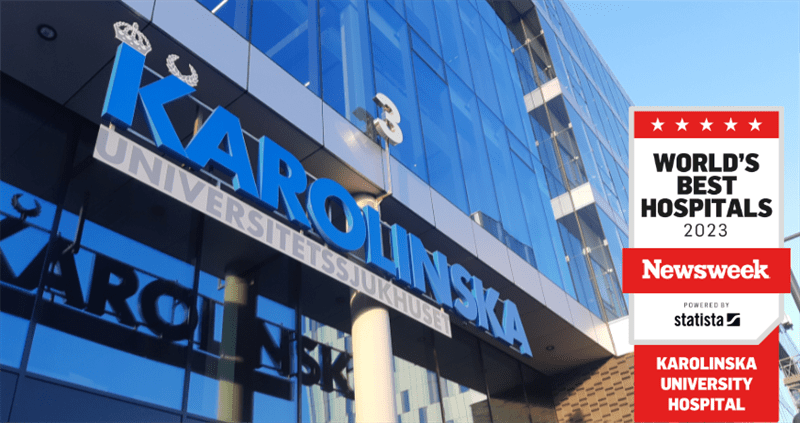With a nr six ranking, Karolinska University Hospital reaches its highest result yet in Newsweek Magazine’s ranking ”World´s Best Hospitals 2023”. Karolinska is ranked highest of all European hospitals.
Newsweek’s assessment encompasses more than 2 300 hospitals in 28 countries. The ranking is based on four aspects:
Recommendations from a large number of experts in the health care sector, such as physicians and managers. 80 000 experts globally were invited to participate, and a large number provided input.
Results from patient surveys, concerning e.g. patient communication and information
Quality results, such as waiting times, patient safety and hygiene compliance.
Use of patient reported outcome measures, meaning how patients themselves rate the effect of treatment on their health and function level.
Newsweek publishes both national ranking lists for all 28 countries and a list of the 250 best hospitals worldwide. After the last three years having reach number ten, seven and eight, Karolinska now takes a step up to number six globally and number one in Europe.
– This is a great acknowledgement for Karolinska’s staff and for Swedish health care, not least because the number of countries and hospitals included in the assessment has increased. We know we are among the best in the world and through Newsweek’s ranking the world is also finding out. After fighting the pandemic we have continued to cut waiting times, further improve quality and develop new treatment methods, says Björn Zoëga, CEO of Karolinska University Hospital.
28 countries are included in Newsweek’s ranking
USA, Germany, Japan, South Korea, France, Italy, Great Britain, Spain, Brazil, Canada, India, Australia, Mexico, The Netherlands, Austria, Thailand, Switzerland, Sweden, Belgium, Finland, Norway, Denmark, Israel, Singapore, Saudi Arabia, United Arab Emirates, Colombia and Taiwan.
